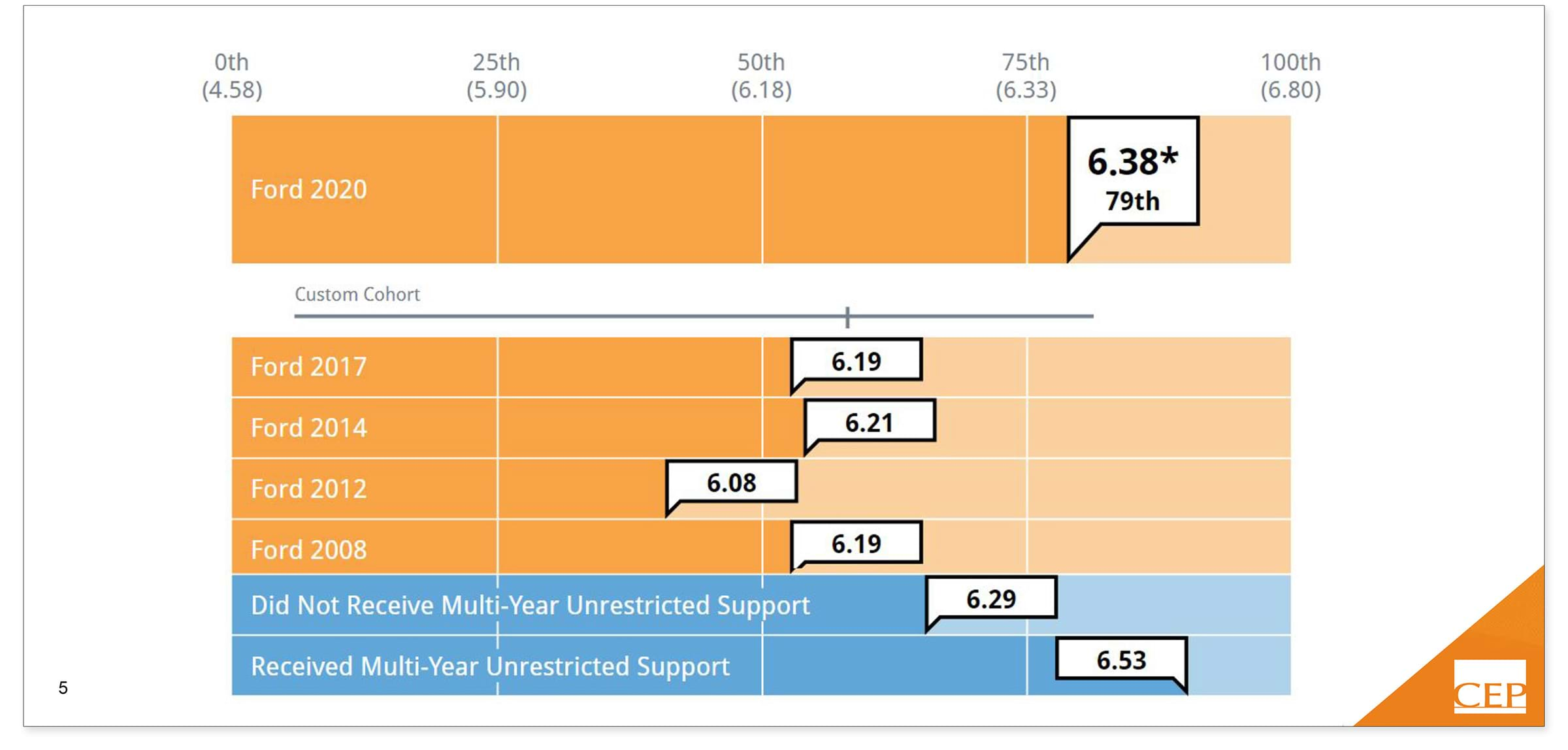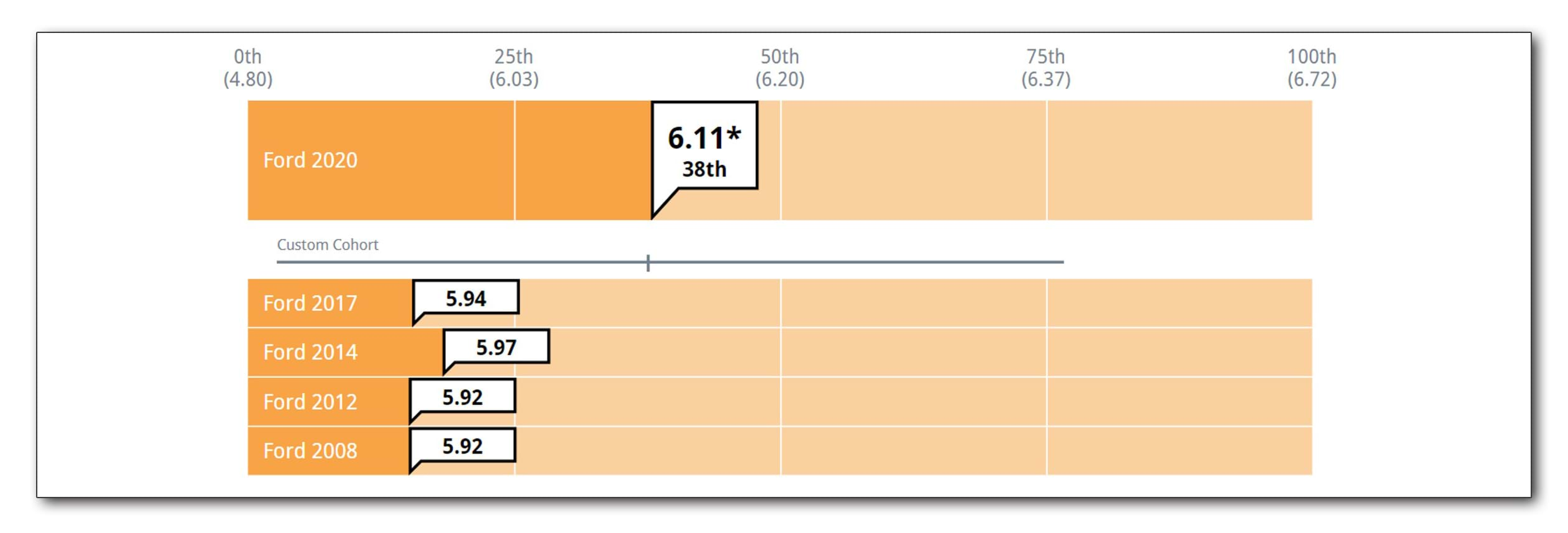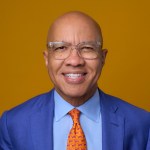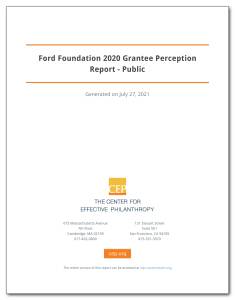Responding to Feedback, Redoubling our Efforts
- Andean Region
- Brazil
- China
- Civic Engagement and Government
- Creativity and Free Expression
- East Africa
- Future of Work(ers)
- Gender, Racial, and Ethnic Justice
- Indonesia
- Mexico and Central America
- Middle East and North Africa
- Mission Investments
- Natural Resources and Climate Justice
- Southern Africa
- Technology and Society
- United States
- West Africa
As a learning organization, we are committed to strengthening our everyday work by listening closely to our partners—particularly our grantees. Your perspectives shape our priorities and processes. And your feedback informs our decision-making, sparking some of our most necessary transformations.
For more than a decade, the Center for Effective Philanthropy (CEP) has aided us in this pursuit by surveying our grantee organizations and gathering and analyzing the honest, transparent feedback they receive. And while the responses haven’t always been easy to hear, they remain a critical part of our journey to unpack our progress as a foundation and chart our way forward.
It is in this spirit we commissioned CEP to conduct a Grantee Perception Report (GPR) in 2020, our fifth since 2008. We were humbled to receive nearly 1,500 responses from our grantee partners (a 55 percent response rate), especially during the time of COVID.
We are pleased to report that the survey’s results show you’ve noticed significant improvements since our last survey in 2017. In fact, this survey marks the first time we have seen progress of this magnitude—and we are grateful to all of you who responded so thoughtfully and recognized the work our teams have done in partnership with you.
While we are encouraged by these results, we still see room for improvement going forward. So in addition to sharing the CEP report with you, we’ve compiled some key findings—and the steps we’re taking to respond to your feedback and build on our efforts.
What we learned
For the first time in a decade, your perception of the Ford Foundation’s relationship with grantees improved significantly—putting us on par, or better, with other large funders. Grantees reported finding us more transparent, approachable, and responsive. And many of you identified that this progress came from more substantive conversations about topics like Ford’s strategy and your organization’s experiences with diversity, equity, and inclusion.
“Overall, how would you rate the Foundation’s impact on your organization?”
1 = No impact, 7 = Significant positive impact

Grantees also reported an increase in Ford’s impact on their organizations and respective fields. In fact, the majority of respondents reported that Ford makes a significant difference in your fields and shapes public policy in meaningful ways.
Funder-Grantee Relationships Overall Summary
1 = Very negative, 7 = Very positive

Many of you also highlighted that our impact extends beyond financial support—including advice, introductions, and the facilitation of collaboration. You placed us alongside or above many other large funders when asked about the depth of our support and usefulness of our grant application processes. The survey showed your perceptions are tied closely to factors like whether the foundation provides unrestricted support or meets indirect costs. In both cases, we’re proud of the work we have done over the last few years—both to unlock more general support and connect leaders across sectors—has been meaningful. We’ll continue to push Ford forward in these areas.
Finally, nowhere has our impact been more evident than in our commitment to diversity, equity, and inclusion. More than 80 percent of all grantees report that their Ford grant benefits historically disadvantaged groups, and 84 percent of our US grantees focus primarily on BIPOC beneficiaries.
We’re proud that you see Ford’s commitment to social justice as crucial to the foundation’s identity and mission—because it is. You are pushing us to go even further: several respondents identified ways we can continue to lead in this area, including influencing other funders to further support BIPOC-led and focused organizations. As always, we take our responsibility to lead philanthropy towards justice seriously and appreciate your solidarity.
Next steps
Your feedback has already encouraged us to evolve. After the 2017 survey, we made a commitment to improve based on your feedback and are dedicated to do the same again. With these new findings, we are confident that we can continue improving the experience of our grantees and extend the impact we can make, together.
First, we’re working to find more ways to strengthen our relationship with grantees and support communication and collaboration with all of you. Although many of you are having more substantive conversations with program officers, you also indicated that you want more from these exchanges. Overall, our ratings for clear, consistent communication remain constant, but relatively low. One in five of respondents recommended that we initiate more, and deeper, interactions with grantees. We hear your feedback and, moving forward, we will increase support for program staff to communicate more effectively with you about your strategies and work. Behind every program officer is a team and an institution dedicated to enhancing the funder-grantee relationship. Our program teams are also taking deliberate steps to involve more grantees more directly in the foundation’s own strategy development.
As recognition of the importance of good practice in grantmaking, we have also introduced a new role: grantmaking effectiveness officer. The grantmaking effectiveness officer will ensure that our new practices are adopted across the board by supporting program staff, starting with their onboarding and continuing through their life cycle as grantmakers.
Additionally, in all of our program areas, we will aim to support the sustainability of our grantees. Whenever possible, we provide grantees with multi-year general support grants. Already, more than 70 percent of our annual funding is in the form of general support, and recently we announced the expansion of our $1 billion BUILD initiative to begin in January, 2021. We will also explore more opportunities to connect grantees with resources and workshops on building financial and organizational resilience. And, among our objectives, we will strive to help you determine and meet true costs whenever possible.
Finally, we will continue leading the philanthropic sector to support new forms of funding for historically disadvantaged communities. Last year, we issued a landmark social bond to bolster our grantmaking and address widening inequities caused by COVID-19. But as these surveys highlight, serving communities requires understanding what they value and need. That’s why we will expand the inclusion of grantee perspectives in our strategy development—so that your insights are at the core of our impact.
We are grateful for the input we received from so many of you and look forward to continuing our conversations as we work to improve. As ever, we remain inspired by and grateful for your work—the ideas you champion, the institutions you build, the leadership you demonstrate, and the movements you mobilize. We pledge to continue to center and elevate your perspectives, and those of the communities you serve.
Please do not hesitate to reach out to your Ford Foundation program officer or grants manager with suggestions, or to simply share your experience. We are, as ever, appreciative of your partnership.


